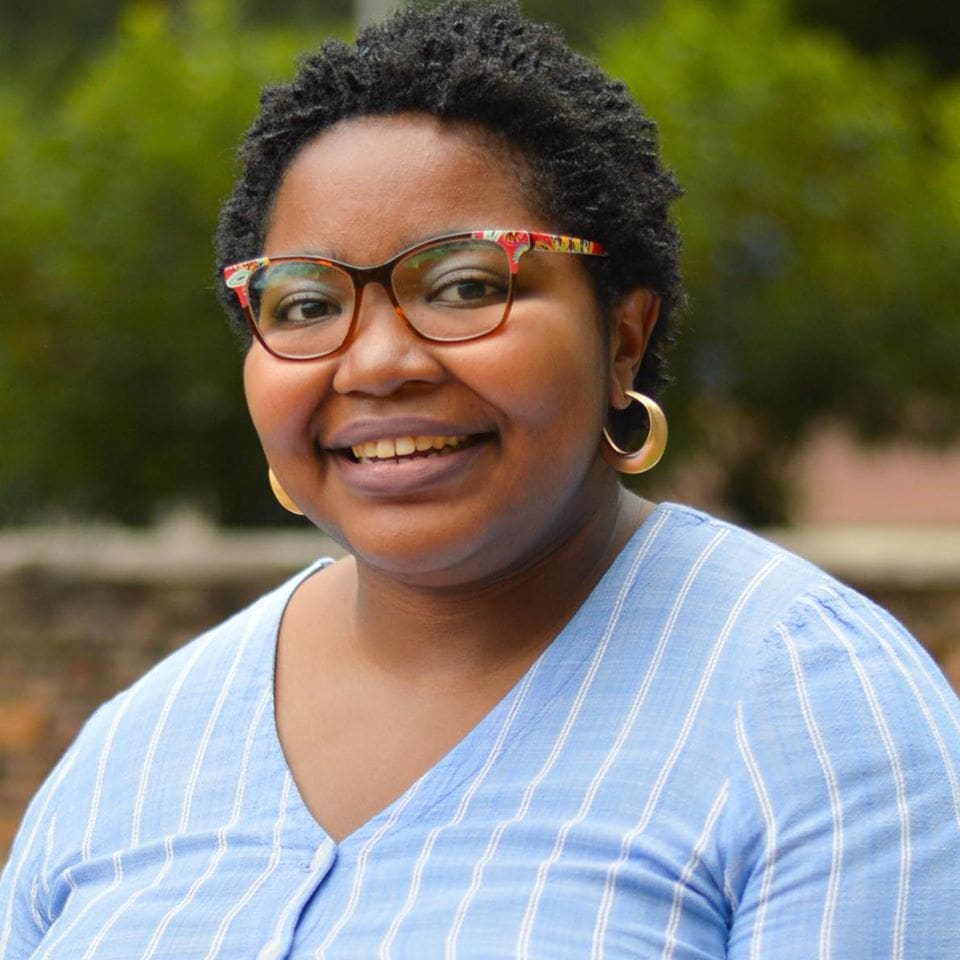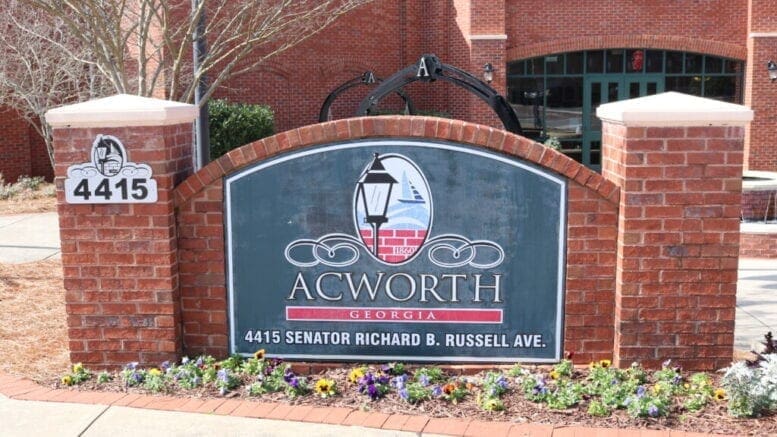A panel of Acworth community leaders gathered Wednesday afternoon to discuss race, policing and bringing the community together in light of the protests surrounding the killings of Ahmaud Arbery, George Floyd and other Black people nationwide.
Acworth city officials hosted the panel. A few members of the public were allowed to attend in a socially-distanced setting while the rest of the community was invited to attend through a livestream of the event.
Panel members were president of The Power of Peace Project Kit Cummings, entrepreneur Earnest Davis, Acworth Chief of Police Wayne Dennard, Allatoona High School teacher Neisha Williams, Board of Aldermen member Tim Houston, Cobb County District One Commissioner Keli Gambrill and Greater Church Pastor Cheno Echevarria.
Allegood asked each panelist a question he selected from a list of questions submitted from the public prior to the event. At the end, audience questions were taken.
The first community question Allegood asked was directed towards Cummings. Allegood asked about the largest challenge facing youths today.
Cummings responded that young people today are facing an identity crisis and that the media they consume may lead to them getting violent messages. Cummings pointed to gangster rap and videos such as Call of Duty as negative influences on young people today.
During his allotted time, Davis likened the COVID-19 crisis to racism. He said that in order to defeat racism — like COVID-19 — society must understand the symptoms. Symptoms of racism may include unconscious racial bias and having an all-white work space.
“I think that we have to be very careful to put too much energy behind changing the people,” Davis said. “We should put our energy towards changing the system. …If we change the system, the laws, the rules and the regulations that govern our society, then it doesn’t really matter what the people feel, because the system will manage.”
Dennard was asked about what he had to say to those who may have accused the Acworth Police Department of racial profiling.
Dennard said statistics show that officers do not intentionally pull over people of color at disproportionately high rates and that the rates at which APD pulls over people of different races correspond with the racial demographics of the city.
“Our citations, our arrests and even our use of force statistics for our police department just about mirror these demographics perfectly in our community,” Dennard said. “There is no disparity in our policing, and if I find out there is a disparity, I’m going to want to know why…so my eye is on it.”
Williams said cities being open to dialogue and listening to people of different backgrounds is a step in amplifying voices of marginalized communities.
Houston remarked that with regard to race, the “system is doing what it was designed to do.” He said that even with the passage of the Emancipation Proclamation, not all Black people were freed and pointed to Black Codes enacted in the south.
Both Gambrill and Echevarria pointed to the Acworth Citizen’s Police Academy and Cobb PD athletic leagues as ways that the community and police can build trust with one another.
During the audience question portion, former reverend of Zion Hill Baptist Church Michael Rudolph gave a personal account of an experience he had decades ago with an Acworth police officer.
Rudolph said that despite being a youth pastor in Acworth with no connection to drugs and sitting on several boards with the former mayor of Acworth, officers approached him and told him he was the “black drug kingpen of Acworth.”
Rudolph said he was detained and upon being released and filing a formal complaint, he was never told where the accusations of drug dealing came from.
“I never ever received an explanation other than one of the young police officers told me ‘We know you’re not a drug dealer, we’re just f’in with you,’” Rudolph said.
Allegood and Dennard personally apologized to Rudolph, but Rudolph still wanted to know what steps are being taken to change the inequalities in society.
Janice Houston, Board member Tim Houston’s wife, asked Dennard if police officers having qualified immunity may correlate with police brutality nationwide.
Dennard said that the protection qualified immunity offers police is good in the sense that it allows them to carry out their jobs and protect them from the civil liabilities of their job. Dennard said he had not studied qualified immunity enough to give his opinion on the matter.
When a community member asked about defunding APD, Dennard said there has been no conversation of defunding APD among city officials.
On the contrary, Dennard said that the state must put more funding towards assisting the mentally ill and the homeless, as law enforcement does not have the training to professionally deal with someone having a mental health crisis.
Allegood said that some aspects of APD could not even be funded with the budget the city just passed. Allegood pointed towards local churches and non-profits who have been helping fill in the gap to assist community needs.

Arielle Robinson is a student at Kennesaw State University. She also freelances for the Atlanta-Journal Constitution and is the former president of KSU’s chapter of the Society of Professional Journalists as well as a former CNN intern. She enjoys music, reading, and live shows.

Thank you for your reporting!
Hello did Chief Dennard State the name of the officer that address Michael Rudolph in that manner. I would like to know if that officer is still on Acworth Police Force
Makes me sick wow come on Acworth
If we have officers acting irresponsibly towards citizens maybe APD is being over funded now and our churches and others should STOP adding anything to that budget until the department gets its ducks in a row. A recent officer involved shooting only walking distance from downtown streets and parks in a highly populated area is a good example of lapsed judgment and perhaps a lapse in leadership.
Opening, continuing dialogue is always a good thing. Especially if, where facilitated well. All politics being local, we can do this, by bottoming up versus top downing. The latter is effective, short-term; the former grows more healthily over time, as proper care and attention are paid, and timely and gentle, naturally supportive modifications made when indicated. The cost, as with all desired outcomes, is the attention we pay. It is good to live where the community looks. Thank you.
The Michael Rudolph incident was decades ago.